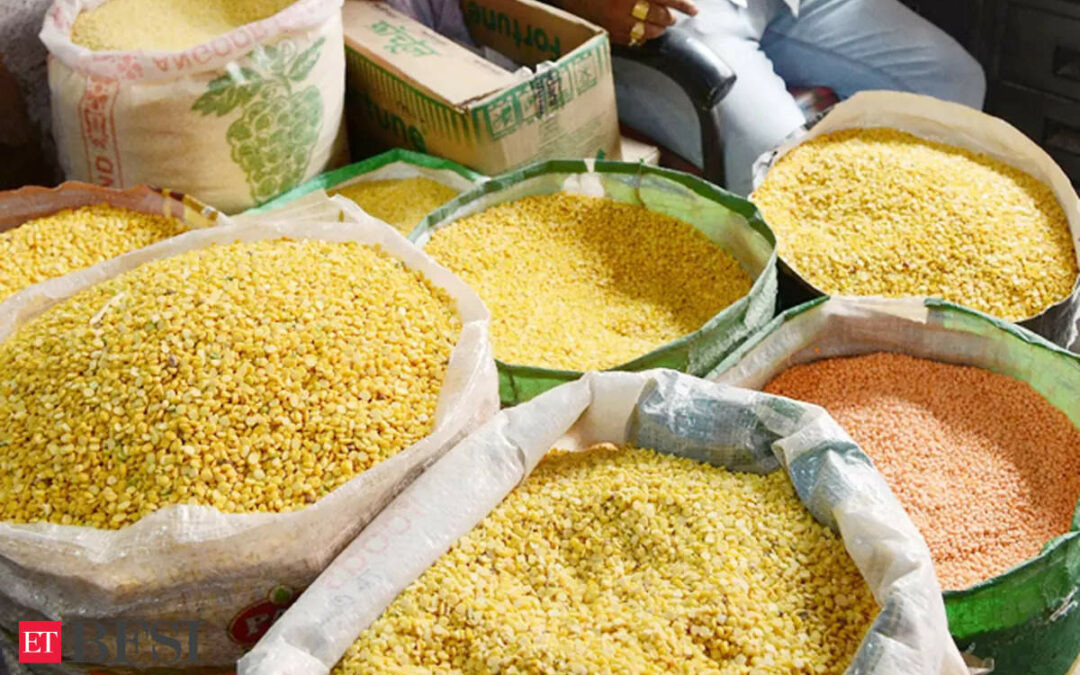The government on Saturday said the payment mechanism for traders importing pulses from Myanmar has been eased and simplified. The importers have been asked to utilize Rupee/ Kyat direct payment system using Special Rupee Vostro Account (SRVA) through Punjab National Bank, the consumer affairs ministry said in a statement.
India depends on imports of pulses to meet the domestic shortage. The country imports tur and urad dals from Myanmar.
Consumer Affairs Secretary Nidhi Khare discussed with Indian Mission in Yangon issues relating to pulses imports from Myanmar such as import prices in the wake of revised exchange rates and stocks held by importers in Myanmar, it said.
The ministry said that the Indian Mission informed the secretary that the Rupee/Kyat Settlement Mechanism has been operationalised from January 25 this year to simplify trade transactions and to make them more efficient.
The Central Bank of Myanmar released guidelines for payment procedures under SRVA on January 26, 2024.
The Indian Mission also informed the secretary that the new mechanism will apply for both sea and border trade and for trade in goods as well as services.
“Adoption of the mechanism by traders will reduce costs associated with currency conversions and eliminate complexities related to exchange rates by eliminating the need for multiple currency conversations,” the ministry statement said.
It said “dissemination about the operationalization of this mechanism among trading communities especially pulses importers is being separately done wherein they are being requested to utilize Rupee/ Kyat direct payment system using SRVA through Punjab National Bank.”
Meanwhile, the government has asked importers and other industry players like millers, stockists, retailers etc to honestly declare their stock of pulses, including imported yellow peas, on a weekly basis on portal https://fcainfoweb.nic.in/psp/ from April 15.
The ministry has also warned that anyone found to be indulging in forward trade of pulses would be dealt with firmly as per various provisions of Essential Commodities Act.
States and Union Territories have also been asked to enforce weekly stock disclosure by all stockholding entities and verify the stocks declared by them.
Stocks in warehouses located in major ports and in pulses industry hubs should be verified from time to time and strict action should be taken on stockholding entities found to be reporting false information on stock disclosure portal, the statement said.
The feedback from the industry and inputs from market intelligence relating to the stock position with various market players have been collated for further verification, it added.










